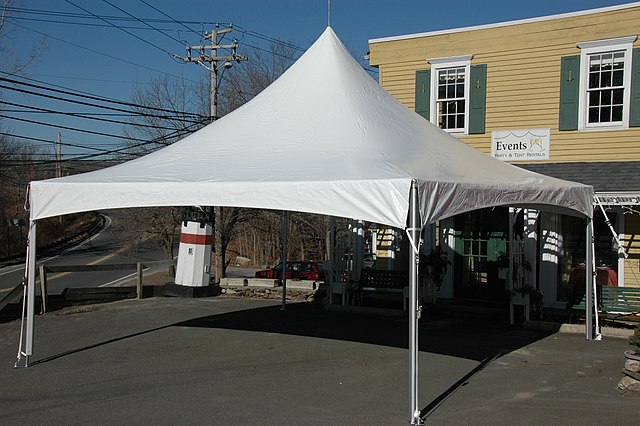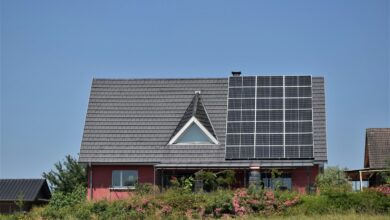
Exploring Canopies: Everything You Need to Know
Canopies are versatile structures that serve a variety of purposes, from providing shelter and shade to enhancing outdoor spaces for recreational and commercial use. Whether used for backyard gatherings, outdoor events, or commercial applications, canopies offer numerous benefits and come in a range of styles and designs to suit different needs. Here’s a comprehensive overview of everything you need to know about canopies.
Table of Contents
Types of Canopies:
Pop-Up Canopies: Also known as instant canopies or pop-up tents, these portable structures are quick and easy to set up and take down. They feature a collapsible frame that expands and locks into place, usually with a push-button mechanism. Pop-up canopies are popular for outdoor events, trade shows, and recreational activities due to their convenience and portability.
Gazebo Canopies: Gazebo canopies are larger, more permanent structures that provide a covered outdoor space for relaxation, dining, or entertainment. They feature a sturdy frame and a fabric canopy supported by posts or pillars. Gazebo canopies are commonly used in gardens, parks, and outdoor venues for weddings, parties, and gatherings.
Carport Canopies: Carport canopies offer shelter and protection for vehicles from the elements, such as sun, rain, and snow. They typically feature a metal frame and a durable fabric canopy that extends over the parking area. Carport canopies are popular for residential use, providing an affordable alternative to traditional garages.
Commercial Canopies: Commercial canopies are large-scale structures used for outdoor events, exhibitions, and commercial purposes. They are often custom-designed and engineered to meet specific requirements, such as branding, signage, and weather resistance. Commercial canopies are commonly seen at trade shows, festivals, and outdoor markets.
Materials and Construction:
Frame Materials: Canopy frames are typically made from lightweight but durable materials such as aluminum, steel, or fiberglass. Aluminum frames are lightweight and corrosion-resistant, making them ideal for portable canopies. Steel frames offer superior strength and stability, making them suitable for larger or more permanent structures.
Canopy Fabrics: Canopy fabrics vary in terms of durability, UV resistance, and weather resistance. Common materials include polyester, vinyl, and polyethylene. Polyester fabrics are lightweight and water-resistant, while vinyl and polyethylene offer superior waterproofing and UV protection, making them suitable for outdoor use.
Features and Accessories:
Waterproofing and UV Protection: Many canopy fabrics are treated with waterproof coatings and UV inhibitors to protect against rain, sun, and harsh weather conditions. Look for canopies with high-quality, weather-resistant fabrics to ensure long-lasting performance.
Ventilation and Airflow: Some canopies feature built-in ventilation panels or mesh sidewalls to promote airflow and prevent heat buildup inside the canopy. This is especially important for hot and humid climates or when using the canopy for extended periods.
Customization Options: Commercial canopies often offer customization options such as printing, branding, and signage to promote businesses or sponsorships. Custom graphics can be applied to the canopy fabric or added as detachable banners for maximum visibility.
Maintenance and Care:
Cleaning: Regular cleaning and maintenance are essential to prolong the life of a canopy. Use a mild soap solution and a soft brush or sponge to clean the canopy fabric, and avoid abrasive cleaners or harsh chemicals that may damage the material.
Storage: Proper storage is important when the canopy is not in use to prevent damage from weather, pests, or UV exposure. Store the canopy in a dry, cool place away from direct sunlight, and avoid folding or storing the canopy when wet or damp to prevent mold and mildew growth.
Frame Maintenance: Inspect the canopy frame regularly for signs of wear, damage, or rust, and lubricate moving parts as needed. Replace any damaged or worn components to ensure the structural integrity and safety of the canopy.
In conclusion, canopies are versatile structures that offer shelter, shade, and protection for a variety of outdoor activities and applications. Whether used for recreational, commercial, or residential purposes, understanding the different types, materials, features, and maintenance requirements of canopies is essential for selecting the right canopy to meet your needs and preferences. With proper care and maintenance, a canopy can provide years of enjoyment and functionality for outdoor living spaces. Contact AJ Canopies for more information.








